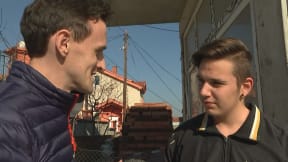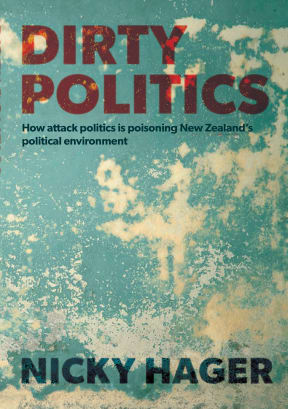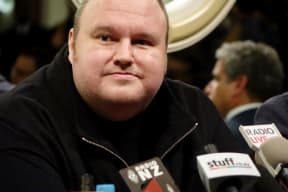A POST-TRUTH ERA FOR NEW ZEALAND POLITICS TOO?

Photo: 123rf.com
Fake news and ‘alternative facts’ invaded Northern Hemisphere politics during the US presidential election and Brexit campaigns, according to Dr Gavin Ellis, lecturer in Media and Communication at the University of Auckland. And he considers that New Zealand is not immune to this post-truth era.
Dr Maria Armoudian, lecturer in Politics and International Relations at the same institution, sees fake news as the obvious (and perhaps inevitable) consequence of the new economic model of the media. “If financial gain and raising your stock prices and increasing the bottom line is the only motivation for the news one puts out, then fake news is really just the extreme of that.”

UK reporter Ciaran Jenkins confronts a 16-year-old running the fake news site '24 News Today' in Macedonia. Photo: Channel 4 News
She points to the revelation that teenagers in the town of Veles, Macedonia made a lot of money selling online advertising which surrounded their fake news stories in support of Donald Trump during his election campaign.
New Zealand, she considers, is a very different place. Our system is not presidential, but parliamentary, and less focused on the personality of individuals than the USA.
Armoudian recently moderated a debate at the university between political parties which was dominated by discussion about policy issues. “There was no personal attack between the candidates like you would have in the United States. There was disagreement, but everybody brought material forward that substantiated their arguments.”
She feels that you wouldn’t find that in the United States where political activity is polarised, personalised and “soundbitten.” Here, by contrast, we still talk about policy: “Not enough or in the depth that we need to, but at least there is policy discussion.”

Book cover Photo: Nicky Hager
Based on what happened at the last general election TVNZ political editor Corin Dann is not so convinced about the power of political ideas. Then, he says, policy discussion was largely sidelined by Nicky Hager’s book Dirty Politics and the welter of claims and counter-claims about media manipulation which it generated.
All the same, he doesn’t feel that commercial imperatives affected the day to day decision-making at TVNZ about what made the news and what didn’t. Instead, he remembers a time of intense pressure “where we had to deal with source documents, emails, the Rawshark stuff, all of that. It was a very difficult period.”
This time round, Dann doesn’t think we’re going to suddenly see a whole bunch of fake news turning up from Macedonia that’s going to influence our election. While acknowledging the commercial pressures to be first with a breaking story, he considers that the nature of television news results in a more balanced approach than might be the case otherwise. “A lot of people are involved in getting a story to air. A lot of eyeballs.”

Kim Dotcom speaks to media after his "Moment of Truth" event at Auckland's Town Hall. Photo: RNZ / Kim Baker Wilson
And he hopes that any fake document will be identified as such along the way. “I think we did see a sort of example of this at the last election” he adds, recalling the email supposedly revealing links between Prime Minister John Key and Warner Bros.
He recalls that it was pretty quickly dismissed as fake by a lot of people. “It was never produced by Dotcom in the ‘moment of truth’ meeting and there was never any resolution in the end as to whether it was or wasn’t what he claimed.”
With that history in mind, Dann still thinks that we have to be very wary about the possibility of that kind of thing recurring in this campaign.

Dr Gavin Ellis, Dr Maria Armoudian, Corin Dann, Chloe Swarbrick, and Mark Jennings. Photo: Auckland University
How will fake news affect this year’s General Election? A panel discussion on what’s a very live issue internationally, chaired by media commentator and former NZ Herald editor Dr Gavin Ellis. Taking part are Dr Maria Armoudian, a lecturer in Politics and International Relations, TVNZ’s Political Editor Corin Dann, Green Party candidate Chloe Swarbrick, and Mark Jennings, co-founder of Newsroom.
Links for further reading:
- https://tinyurl.com/buzzfeed-article-on-fake-news
- https://tinyurl.com/Macedonia-fake-news
- https://tinyurl.com/BBC-on-fake-news
- https://tinyurl.com/Mediawatch-on-Qatar-fake-news

Photo: University of Auckland
This session was broadcast by RNZ in association with the by the Project for Public Interest Media at the University of Auckland.

